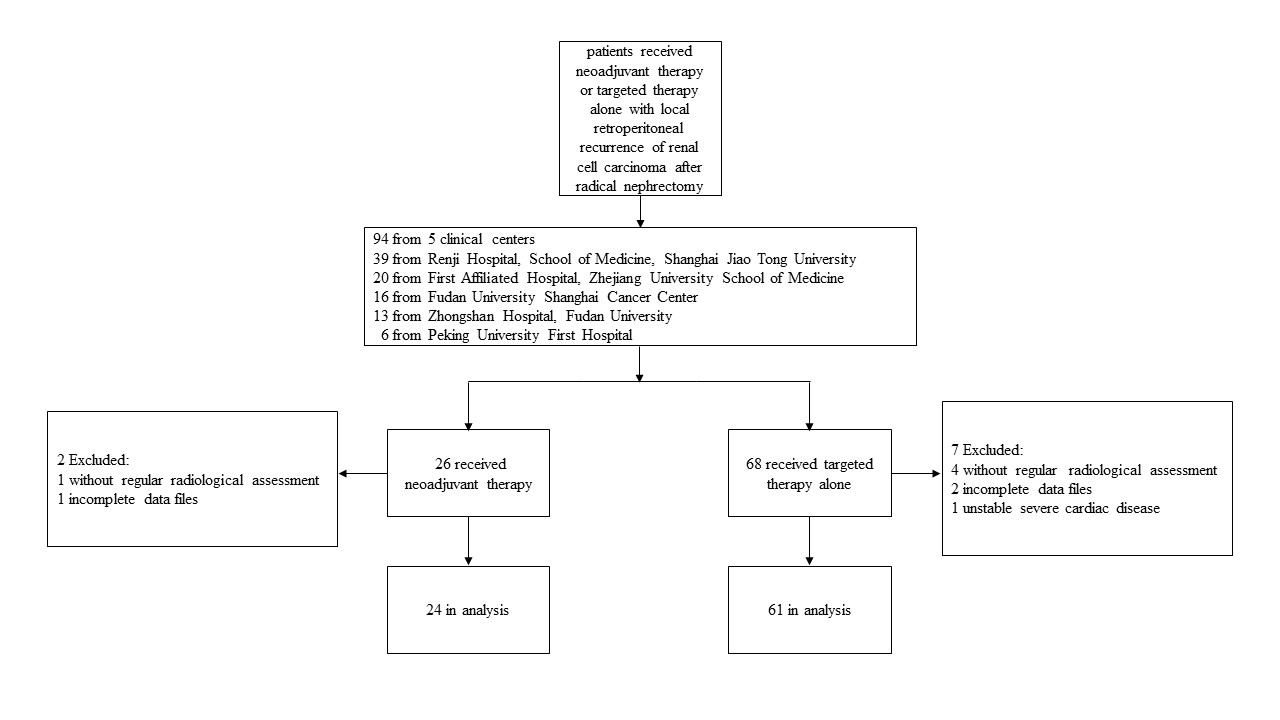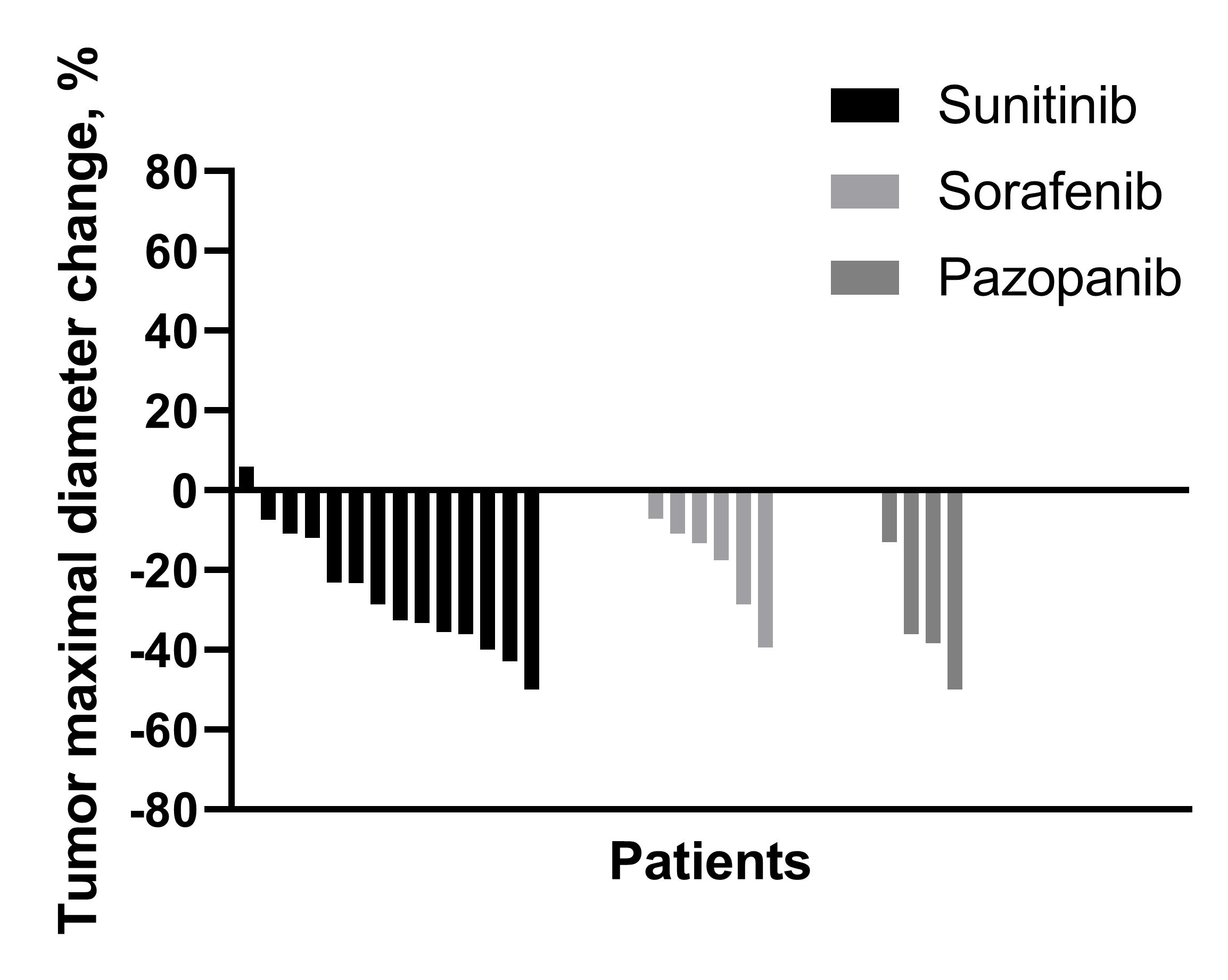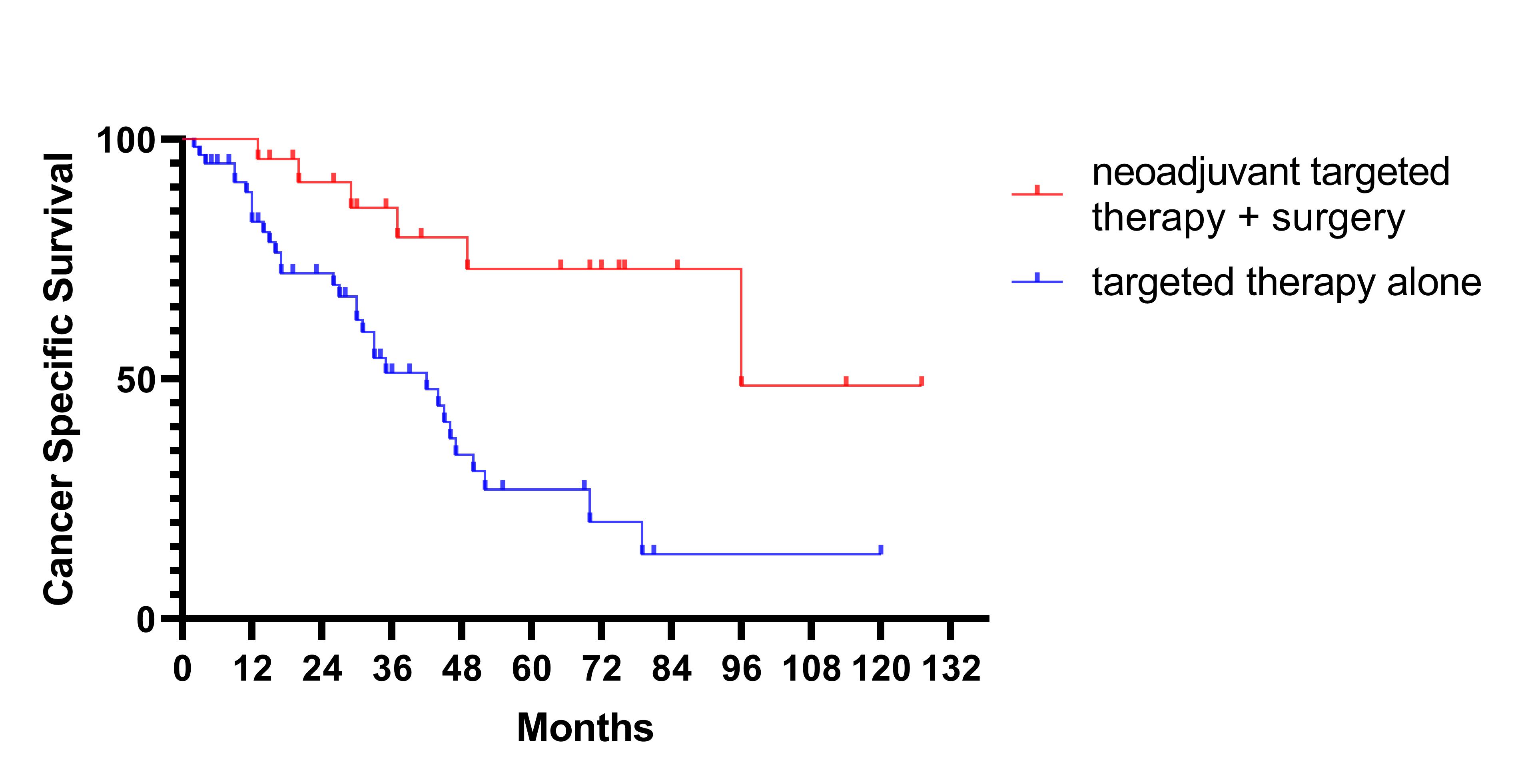Back
Poster, Podium & Video Sessions
Moderated Poster
MP12: Kidney Cancer: Advanced (including Drug Therapy) I
MP12-11: Neoadjuvant therapy in the management of local retroperitoneal recurrence of renal cell carcinoma after radical nephrectomy
Friday, May 13, 2022
1:00 PM – 2:15 PM
Location: Room 222
Jiwei Huang*, Yueming Wang, Shanghai, China, People's Republic of, Cuijian Zhang, Beijing, China, People's Republic of, Xiaoyi Hu, Shanghai, China, People's Republic of, Ping Wang, Hangzhou, China, People's Republic of, Guohai Shi, Jin Zhang, Wen Kong, Yonghui Chen, Yiran Huang, Dingwei Ye, Shanghai, China, People's Republic of, Dan Xia, Hangzhou, China, People's Republic of, Jianming Guo, Shanghai, China, People's Republic of, Zhisong He, Beijing, China, People's Republic of, Wei Xue, Shanghai, China, People's Republic of
- JH
Poster Presenter(s)
Introduction: Local retroperitoneal recurrence (RPR) after radical nephrectomy (RN) is rare in patients with renal cell carcinoma (RCC); however, it is associated with poor prognosis and lacks standard treatment. This study aimed to assess oncological outcomes and prognostic factors of patients that underwent targeted therapy for RPR after RN, and to evaluate the role of neoadjuvant targeted therapy in this context.
Methods: This was a retrospective multi-center study of 85 patients with RPR treated with targeted therapy for RPR after RN (2008-2020). Clinical and pathological characteristics were reported using descriptive statistics. Cancer-specific survival (CSS) was examined using the Cox proportional hazards model.
Results: The median follow-up time was 50 months (95% confidence interval [CI]: 33.3-66.7) after the RPR diagnosis. The median CSS was 96 months in the neoadjuvant targeted therapy followed by surgical resection group and 42 months (95% CI: 28.8-55.2) in the targeted therapy alone group (P = 0.001). In multivariate analysis, International Metastatic RCC Database Consortium classification poor-risk, number of recurrence sites, and surgical resection were independent predictors of CSS.
Conclusions: Neoadjuvant targeted therapy may increase the feasibility of tumor resection for RPR after RN. Patients who underwent surgical resection following neoadjuvant targeted therapy had better CSS than those treated with targeted therapy alone.
Source of Funding: This study was supported by grants from the Natural Science Foundation of Shanghai (21ZR1438900), Incubating Program for Clinical Research and Innovation of Renji Hospital (PYXJS16-008 and PYIII20-07), and Basic Oncology Research Program from the Bethune Charitable Foundation (BCF-NH-ZL-20201119-024).



Methods: This was a retrospective multi-center study of 85 patients with RPR treated with targeted therapy for RPR after RN (2008-2020). Clinical and pathological characteristics were reported using descriptive statistics. Cancer-specific survival (CSS) was examined using the Cox proportional hazards model.
Results: The median follow-up time was 50 months (95% confidence interval [CI]: 33.3-66.7) after the RPR diagnosis. The median CSS was 96 months in the neoadjuvant targeted therapy followed by surgical resection group and 42 months (95% CI: 28.8-55.2) in the targeted therapy alone group (P = 0.001). In multivariate analysis, International Metastatic RCC Database Consortium classification poor-risk, number of recurrence sites, and surgical resection were independent predictors of CSS.
Conclusions: Neoadjuvant targeted therapy may increase the feasibility of tumor resection for RPR after RN. Patients who underwent surgical resection following neoadjuvant targeted therapy had better CSS than those treated with targeted therapy alone.
Source of Funding: This study was supported by grants from the Natural Science Foundation of Shanghai (21ZR1438900), Incubating Program for Clinical Research and Innovation of Renji Hospital (PYXJS16-008 and PYIII20-07), and Basic Oncology Research Program from the Bethune Charitable Foundation (BCF-NH-ZL-20201119-024).




.jpg)
.jpg)